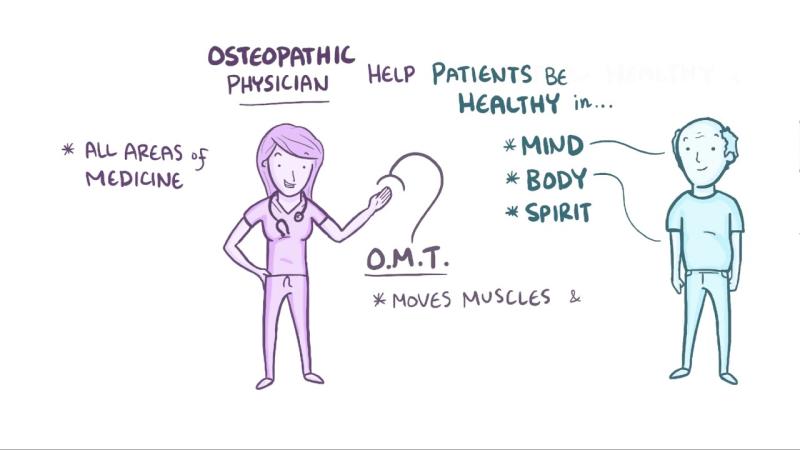How do you become a Doctor of Osteopathic Medicine?
Becoming a Doctor of Osteopathic Medicine (DO) involves a comprehensive educational path and specific requirements similar to that of a Doctor of Medicine (MD). Here are the general steps to become a Doctor of Osteopathic Medicine:
Educational Requirements:
Bachelor's Degree: Complete a bachelor's degree from an accredited college or university. While there's no specific major required, most students pursuing osteopathic medicine complete pre-medical coursework in biology, chemistry, physics, and mathematics.
Pre-Medical Prerequisites: Fulfill prerequisite courses required by most osteopathic medical schools, which typically include biology, general chemistry, organic chemistry, physics, and sometimes behavioral sciences.
Medical College Admission Test (MCAT): Take the MCAT exam, a standardized test that assesses knowledge of scientific concepts, critical thinking, and problem-solving abilities. High scores are crucial for admission to osteopathic medical schools.
Apply to Osteopathic Medical School: Apply to accredited osteopathic medical schools through the American Association of Colleges of Osteopathic Medicine (AACOM). Completing the AACOMAS application (similar to the AMCAS application for allopathic medical schools) is a common way to apply.
Osteopathic Medical School:
Attend Osteopathic Medical School: Complete a Doctor of Osteopathic Medicine (DO) program, which typically takes four years to complete. These programs include both classroom-based learning and clinical rotations.
Licensing Exams: After graduating from osteopathic medical school, pass the Comprehensive Osteopathic Medical Licensing Examination (COMLEX-USA) series, which is required for licensure as a DO in the United States.
Postgraduate Training:
Residency: Complete a residency program in a chosen specialty. This typically ranges from three to seven years, depending on the specialty chosen. During residency, doctors gain supervised clinical experience in their chosen field.
Optional Fellowship: After residency, some doctors opt for fellowships to further specialize in a specific area within their chosen specialty.
Obtain State Licensure: Apply for medical licensure in the state where you intend to practice. Each state has its own licensing requirements, which usually include passing the licensing exams and meeting specific criteria.
Continuing Education:
- Continuing Medical Education (CME): Maintain licensure by participating in ongoing CME activities, which involve continuing education to stay updated with medical advancements and practices.
Becoming a Doctor of Osteopathic Medicine requires dedication, a strong academic foundation, and a commitment to lifelong learning. It's a rewarding career that allows practitioners to focus on holistic patient care, considering the body's interconnectedness and emphasizing preventive medicine and wellness.
What are the educational requirements and steps to become a Doctor of Osteopathic Medicine (DO)?
Becoming a Doctor of Osteopathic Medicine (DO) requires dedication and specific educational steps. Here's a breakdown of the educational requirements and path to achieving your goal:
Educational Requirements:
- Undergraduate Degree:
- No specific major is required, but pre-med coursework in biology, chemistry, physics, and mathematics is crucial.
- Maintaining a high GPA (typically 3.5 or higher) is essential for competitive DO programs.
- Participating in research or volunteer work related to healthcare can strengthen your application.
- Medical College Admission Test (MCAT):
- This standardized test assesses your scientific knowledge, problem-solving skills, and critical thinking abilities.
- Aim for a high score (typically 500+) to be competitive for DO programs.
- Osteopathic Medical School:
- Four years of rigorous study covering anatomy, physiology, pathology, pharmacology, and clinical skills.
- DO programs also emphasize Osteopathic Manipulative Medicine (OMM), a hands-on approach to diagnosing and treating musculoskeletal conditions.
- Maintain excellent academic performance and actively participate in extracurricular activities.
- Residency:
- Three to five years of intensive training in a specific medical specialty, such as internal medicine, pediatrics, or surgery.
- Residency programs provide hands-on experience under the supervision of experienced physicians.
- Successful completion of residency leads to board certification in your chosen specialty.
Steps to Becoming a DO:
- Explore and Decide:
- Deeply research osteopathic medicine and the DO path to ensure it aligns with your career aspirations and values.
- Shadowing practicing DOs or volunteering in healthcare settings can provide valuable insights.
- Prepare for the MCAT:
- Take dedicated prep courses, utilize study resources, and practice mock exams to optimize your MCAT score.
- Apply to Osteopathic Medical Schools:
- Research accredited DO programs that align with your interests and preferences.
- Craft a compelling personal statement and gather strong letters of recommendation.
- Attend interviews and showcase your qualifications, motivations, and dedication to the profession.
- Excel in Medical School:
- Manage your workload effectively, prioritize your studies, and seek support from classmates and faculty.
- Actively participate in OMM training and hone your diagnostic and treatment skills.
- Aim for academic excellence and develop strong relationships with mentors and peers.
- Match into a Residency Program:
- Apply to residency programs through the Electronic Residency Application Service (ERAS).
- Interview with potential programs and demonstrate your passion for your chosen specialty.
- Secure a residency match to begin your specialized training and advance towards becoming a licensed DO.
- Licensure and Certification:
- Pass the United States Licensure Examination (USMLE) and state-specific licensing exams to become a practicing physician.
- Complete board certification exams in your chosen specialty to further demonstrate your expertise.
Remember:
- The path to becoming a DO is demanding but rewarding.
- Dedication, perseverance, and passion for medicine are key to success.
- Utilize resources like the American Association of Colleges of Osteopathic Medicine (AACOM) for guidance and support throughout your journey.
I hope this provides a comprehensive overview of the educational requirements and steps to becoming a DO. Feel free to ask if you have any further questions!












